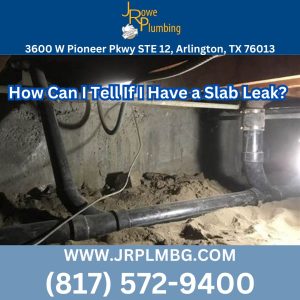
Introduction
In homes with slab foundations, slab leaks can pose a significant threat to both the structural integrity of the property and the plumbing system hidden beneath. A slab leak happens when a water line running below your concrete foundation begins to leak, allowing water to seep into the ground or your home’s flooring. For homeowners in Arlington Texas, recognizing the early indicators of a slab leak is essential to preventing major disruptions and damage. This comprehensive guide explores the causes, symptoms, and solutions for slab leaks so you can safeguard your home.
What Is a Slab Leak?
A slab leak is a plumbing issue that occurs when pipes beneath a home’s concrete foundation develop leaks. These leaks can happen in water supply lines or drainage pipes and may lead to structural damage, mold growth, and increased water consumption. Because the leak is hidden below the foundation, it often goes undetected until signs of damage appear inside the home.
Common Causes of Slab Leaks
1. Corrosion
Over time, pipes may corrode due to water quality, chemical reactions, or age, leading to leaks.
2. Abrasion
Pipes that rub against concrete, gravel, or other hard materials can wear down and eventually leak.
3. Shifting Foundation or Soil Movement
Changes in the soil beneath your home, such as settling or expanding clay soil, can stress pipes and cause them to crack.
4. Poor Installation
Improperly installed plumbing may increase the risk of premature pipe failure and leaks.
Warning Signs of a Slab Leak
Identifying the signs of a slab leak early can help protect your home and avoid costly repairs. Watch for these indicators:
Unexplained High Water Bills
If your water bills increase without any change in water usage, it could point to an unseen leak beneath your foundation.
Damp or Warm Spots on the Floor
Hot water line leaks can cause areas of your floor to feel warm, while both hot and cold leaks may create damp spots.
Mold or Mildew Odors
Persistent moisture under flooring creates an ideal environment for mold and mildew, resulting in musty odors.
Low Water Pressure
Water escaping from your plumbing system through a slab leak may lead to a noticeable drop in water pressure at fixtures.
Cracks in Walls or Flooring
Water leaks beneath your foundation can compromise structural integrity, leading to cracks in walls, floors, or ceilings.
Sound of Running Water
Hearing water running when no fixtures are in use may indicate a hidden leak.
How Slab Leaks Affect Arlington Texas Homes
Arlington Texas homes are particularly susceptible to slab leaks due to the region’s expansive clay soil and shifting ground conditions. Seasonal changes can lead to soil movement, placing added stress on underground pipes. This makes regular inspections and awareness of warning signs essential for homeowners in the area.
How to Confirm a Slab Leak
If you suspect a slab leak, take these steps before calling a professional:
- Shut off all water fixtures and check your water meter. A running meter could indicate a leak.
- Inspect floors for warmth or dampness.
- Listen for water sounds during quiet moments.
These steps may suggest the presence of a leak, but professional plumbing expertise is needed for confirmation.
Professional Detection Methods
Licensed plumbing professionals use advanced tools to locate and assess slab leaks:
- Electronic Leak Detection: Identifies the source of leaks using sensitive equipment.
- Thermal Imaging: Detects temperature variations caused by leaking hot water lines.
- Pressure Testing: Assesses the integrity of the plumbing system.
Slab Leak Repair Options
The right solution depends on the leak’s location and your home’s plumbing system condition. Professionals may recommend:
Spot Repair
Accessing and fixing the specific leaking section. Suitable for isolated leaks in newer pipes.
Rerouting
Installing new plumbing lines to bypass the damaged section entirely. This method reduces the risk of future leaks in the same area.
Pipe Lining
Using epoxy or similar materials to coat the inside of pipes and seal leaks, often without excavation.
Preventing Slab Leaks
While not all slab leaks can be prevented, these steps help lower the risk:
- Schedule regular plumbing inspections to catch potential problems early.
- Install a water softener if hard water is common in your area to reduce corrosion.
- Monitor your water bills and pressure for sudden changes.
In Arlington Texas, where soil conditions and climate can impact plumbing, staying vigilant is key to avoiding serious issues.

The Importance of Seeking Professional Help
If you notice signs of a potential slab leak, acting quickly is vital. Slab leaks can cause severe damage to your home’s foundation and lead to secondary issues like mold growth and structural weakening. Professional plumbers have the expertise and equipment needed to detect, diagnose, and repair slab leaks accurately and efficiently. Attempting repairs without proper knowledge may result in incomplete fixes or further damage.
Conclusion
Detecting a slab leak early can help you avoid significant damage and protect your home’s safety and value. Pay attention to high water bills, damp floors, mold odors, and low water pressure as potential red flags. Especially in Arlington Texas, where ground conditions can contribute to plumbing vulnerabilities, being proactive is crucial. Don’t hesitate to contact a qualified plumbing professional to ensure your home remains secure and free from hidden leaks.





